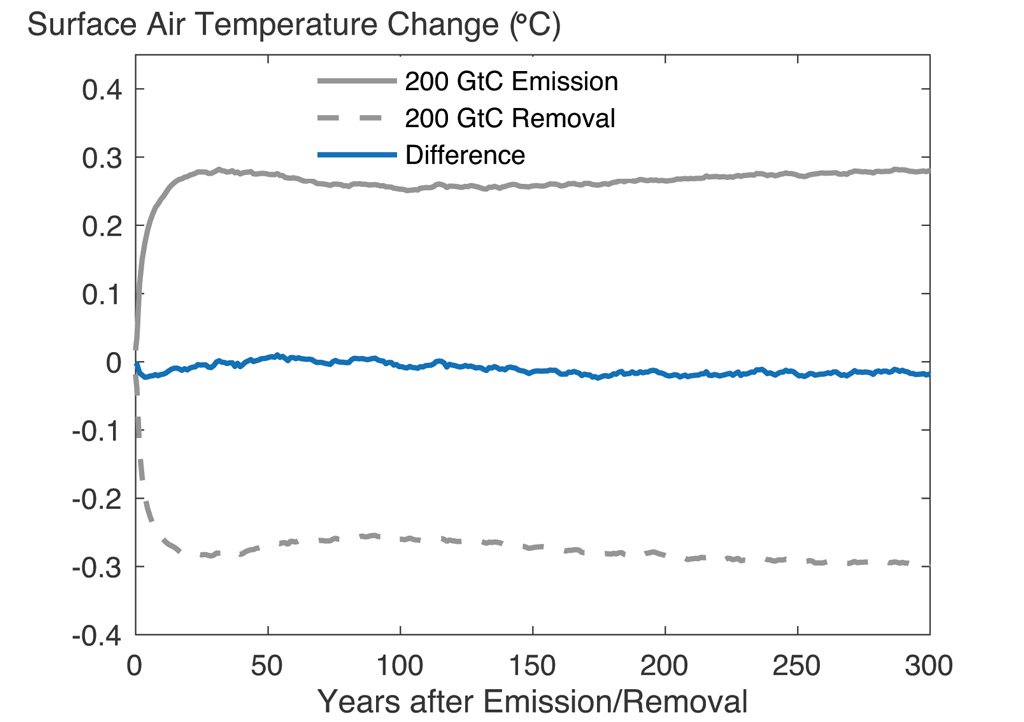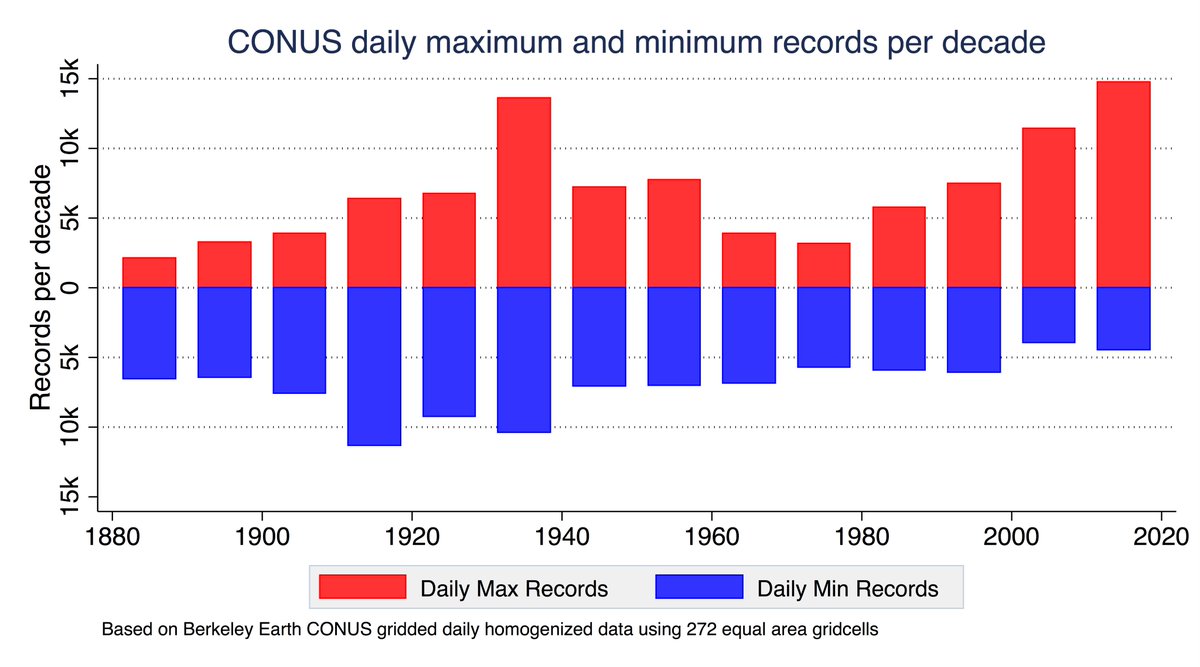
Its a tad disconcerting that the CMIP6 multimodel mean (using the 41 unique models current available) for the scenario intended well-below 2C – SSP1-2.6 – gives more than 2C warming by 2100: 
https://twitter.com/gjvoldenborgh/status/1409252032087826434

That said, there are reasons to somewhat discount some of the very high sensitivity models that drive the overall multimodel mean upwards since CMIP5: thebreakthrough.org/issues/energy/…
Correction: 40 SSP1-2.6 models, and it should have read "the scenario intended to be well-below 2C".
• • •
Missing some Tweet in this thread? You can try to
force a refresh















